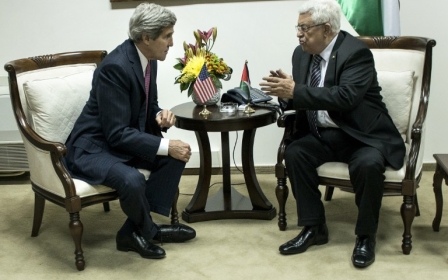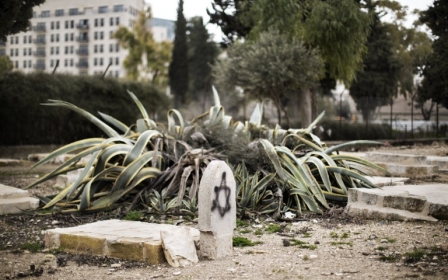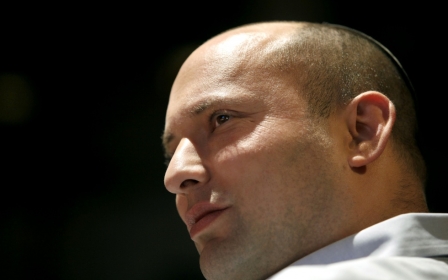Kerry meets Israeli chief peace negotiator

US Secretary of State John Kerry Thursday met with Israel's chief peace negotiator Tzipi Livni in London, just weeks after his relentless bid to broker a treaty with the Palestinians came screeching to a halt.
US officials confirmed that the top American diplomat had held surprise talks with Israeli Justice Minister Livni, as they took advantage of both being in London at the same time for different meetings.
Hours earlier, Kerry met with Palestinian leader Mahmoud Abbas at a private hotel, also in London on Wednesday.
In his meeting with Livni, Kerry voiced concern after two Palestinians were shot dead by Israeli forces Thursday during a protest outside the Ofer prison near Ramallah, on the West Bank.
Kerry "again urges both sides to refrain from unhelpful steps," a senior State Department official said in a statement.
New MEE newsletter: Jerusalem Dispatch
Sign up to get the latest insights and analysis on Israel-Palestine, alongside Turkey Unpacked and other MEE newsletters
"He is concerned about the violent incident that took place today outside the Ofer prison and calls upon both sides to exercise maximum restraint."
The State Department official said he and Livni both happened to be in London "and it provided an opportunity for them to catch up since the pause in the negotiations".
Kerry gave Livni the same message as he had stressed to Abbas - that the fate of the talks lies in the hands of the Israelis and Palestinians.
"While the door remains open to peace, the parties must determine whether they are willing to take the steps necessary to resume negotiations," the US official said.
Kerry had also reiterated to Abbas on Wednesday that any Palestinian government must recognise Israel and commit to non-violence.
British Foreign Secretary William Hague later tweeted to confirm he had also met with Livni for talks on the peace process, urging that the "opportunity for peace must be seized".
Kerry coaxed the Israelis and the Palestinians back to the negotiating table in July 2013 after a three-year hiatus, and both sides agreed to keep talking for nine months.
But the 29 April deadline expired with the peace process in disarray, forcing Kerry and his team to declare a "pause" in the negotiations.
In more violence in the region, Israeli border police shot dead two Palestinians on Thursday during a demonstration in the West Bank marking the 66th anniversary of the Nakba, or "catastrophe" of the Jewish state's creation in 1948.
The shooting triggered a warning from the Palestinians that they may "seriously consider a halt to security coordination with the Israeli side," Palestinian security spokesman Adnan al-Damiri told AFP.
Israeli Prime Minister Benjamin Netanyahu meanwhile on Thursday accused the Palestinians of teaching their children that Israel "should be made to disappear".
The Israeli answer was to "continue building our country and our unified capital, Jerusalem", said the right-wing premier.
Middle East Eye delivers independent and unrivalled coverage and analysis of the Middle East, North Africa and beyond. To learn more about republishing this content and the associated fees, please fill out this form. More about MEE can be found here.




